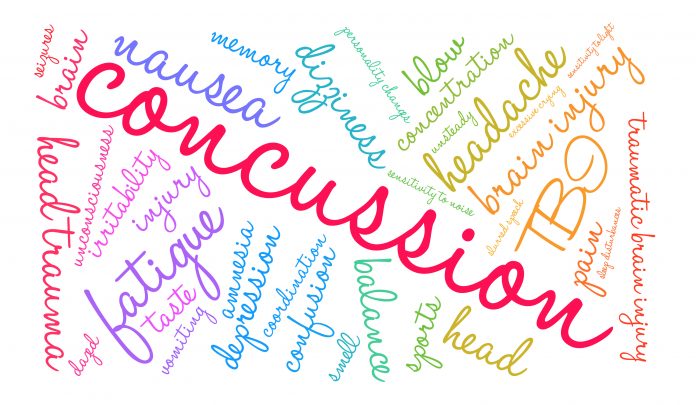We’ve all had a tumble or two in our lifetimes. Whether we’re rushing to get to an appointment and lose our footing, or stumble down the stairs, accidents can happen. But some injuries are more serious than they appear. Last month, I took a fall down a flight of stairs and hit my head on the hard ceramic floor. I didn’t think much of the experience at first. There was no blood, so I picked myself up and headed back to the kitchen so I could finish making dinner. Other than a terrible headache and nausea, I was feeling pretty good after falling down eight steps. I should have taken it more seriously then, as it turned out I had a concussion – something that completely shocked me.
What is a Concussion?
The brain is a soft organ that is surrounded by spinal fluid and protected by the hard skull. The fluid around your brain acts like a cushion that keeps your brain from banging into your skull. But if your head or your body is hit hard, your brain can crash into your skull and be injured.
As we age, our risk of falling and suffering injuries such as a concussion increases simply due to muscle weakness, being on particular medications, a decrease in blood pressure or tripping hazards in the home.
What to Watch Out For:
Contrary to popular belief, you don’t need to lose consciousness to have a concussion. You may not be visibly bruised after a blow to the head, but here are some signs you should look out for after a head injury:
- Bad headache
- Decreased cognitive function
- Nausea and/or vomiting
- Lack of coordination
- Dizziness
- Pupil dilation
- Blurry vision
- Severe mood swings
See your doctor or head to the nearest hospital if you’re experiencing any of the above-mentioned symptoms.
The Good News…
With rest, most people recover well from a concussion. In rare cases, concussions can cause serious problems. Severe concussion or repeated concussions could lead to problems with learning, movement, etc. Rest after a concussion is crucial, as well as avoiding activities that might injure you again. You may be more sensitive to light and will have to limit use of screen time.
This article is intended for informational purposes only. Please consult your healthcare practitioner if you think you are at risk for a concussion or are experiencing symptoms of one.























